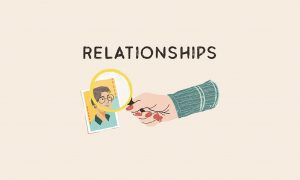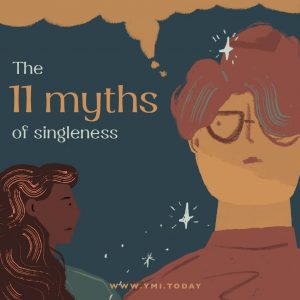What Helped Me Navigate Singlehood in My Twenties
I was single for most of my twenties. I didn’t really mind it at first, since most of my friends were also single. But when our peers started to get married one by one, our “single” status began to stick out like a sore thumb. I still remember that dreaded practice at wedding parties (which was common where I’m from) where they’d “invite” all the guests who are single to play the “singles’ game”.
I also often encountered older people who would come up to me and pointedly ask if I was seeing anyone, and if I wasn’t, why that was the case. These conversations were often uncomfortable and disheartening, making me wonder what I was doing wrong and why my relationship status was all people cared about.
I got married at 31, but years before that, I had already begun to contemplate the possibility that I may remain single, so I asked God to help me prepare for that life. I told God that I didn’t want to live as though singlehood was a consolation prize when the Bible very clearly says it isn’t (1 Corinthians 7:6-8). And if God said so, then I trusted that He was more than able to prove that to me.
This doesn’t mean I never struggled with loneliness and unhappiness (so many hours I had spent wistfully scrolling through others’ wedding photos!). But God was gracious, and I was so blessed to have friends who walked with me through that season.
Here are a few insights and experiences that helped me to not feel so woefully unhappy about being single in my twenties.
1. Don’t let your heart—feelings, thoughts, expectations—get ahead of yourself
When I was young and a guy would express some hint of interest, my thoughts would immediately go to, Is this it? Is he the one? Gosh I hope this works out! I would obsessively read messages over and over, trying to decipher where our interactions were going and how to make things move along faster. I would have all kinds of fantasies about how lovely we’d look together as a couple.
Over time I came to see how unhelpful it was to let my thoughts run wild and get so far ahead. One time after a date, a guy stopped responding to my messages. I remember talking to my friend who knew the guy and asking in a woefully self-pitying tone, “What’s wrong with me?” And to this day, his super helpful response has stayed with me: “Nothing’s wrong with you. It just didn’t work out.”
No doubt it stings to be rejected, but when you get your hopes up too early, the disappointment becomes so much more pronounced. This is why in Song of Songs, we’re told not to awaken love until it so desires (2:7, 3:5, 8:4), because it is for our protection. When we’re nowhere near the point of marriage and we’ve awakened such longing in ourselves, it makes us miserable.
Whenever out of excitement, my emotions and longing become so pronounced, I’ve found it immensely helpful to take them to God. Because our Father is so welcoming of us, I believe He would be thrilled if we would involve Him to this extent. I like to think we can even pray something like this:
Lord, I think I like this guy, but maybe I’m getting ahead of myself. Would You help me to manage my expectations and keep my eyes on You, so I can be spared of any unnecessary heartache?
Let’s allow Him to centre us and keep us grounded, so we can respond wisely to situations and opportunities where there might be “potential” for love to grow.
2. Allow yourself to be the “third wheel” from time to time
I imagine not many people like to play “third wheel”, but I’m thankful for all the older couple friends in my life who would invite me to have meals together, get coffee, and even watch movies in some cases. To me, it felt like we were hanging out as a group of friends, and they didn’t behave in an overtly “couple-y” way that would’ve made me feel like I was intruding.
One thing that I got from observing couple friends up close was seeing how they grappled with the challenges in marriage—finances (if my spouse makes less, am I okay to live with less?), sickness (if my spouse often falls sick, how can I stay healthy and strong to take care of us?), even just the day-to-day things (is it going to drive me crazy if my spouse is indecisive?).
All these things added up made me see how marriage is not something you want to do with just anyone, and it’s infinitely better to be single than to be married to the wrong person.
As I think about what else makes third wheeling (which doesn’t mean inviting myself to their dates, by the way!) helpful, I realise that it’s about reinforcing the idea that there shouldn’t be any “us vs. them” between singles and couples. The more we’re able to relate to each other as friends, the less we’d be prone to feeling left out or left behind when they’re married. What’s also helped is thinking about how I’m friends with them as individuals, and just because they’re coupled up doesn’t mean they aren’t also individuals in their own right.
As Galatians 3:28 says, “There is neither Jew nor Gentile, neither slave nor free, nor is there male and female, for you are all one in Christ Jesus”. Perhaps it might be helpful to also say that there is “neither single nor married” in terms of how we ought to care for one another as His church.
I hope and pray that, as our cultures gradually change and marriage no longer has to be “the norm”, we as the Church will learn to be genuinely inclusive in our efforts to relate to each other as brothers and sisters in Christ, regardless of our relationship status or life stage.
1 Corinthians 12:25 tells us that we as members of one body “should have equal concern for each other.” Our call to minister to one another shouldn’t be limited by our marital status, even as we also acknowledge the need for caution when it comes to intergender friendships.
Those of us who are married shouldn’t fall into the trap of only hanging out with other couples, and those who are single shouldn’t feel like they can’t reach out to friends who are in relationships or married.
3. There’s more to life than romance—so savour every bit of it
We know this is the “correct” answer. We know Paul said that he believed it was better to be single, and even Jesus Himself wasn’t married.
But during the hardest moments of singlehood, all I could think of was, well, I’m not Jesus or Paul, it’s just too hard for me.
In Ecclesiastes 5, the Preacher talks about how a person’s “ability to enjoy . . . accept their lot and be happy . . . is a gift of God”, and that “God keeps them occupied with gladness of heart” so that they don’t spend most of their days consciously thinking (worrying) about the hardships of life (vv. 19-20).
These verses from Ecclesiastes have given me a good picture of self-forgetfulness: choosing to trust that God is going to look after me, so I won’t spend a lot of time thinking about my “predicament” that I cannot easily fix or change.
When you’re feeling a lack so strongly, it’s very hard to tell yourself to forget about it or to pretend you don’t really want it. But what can make your situation bearable is when God grants you that self-forgetfulness and gives you opportunities to throw yourself fully into meaningful work and relationships. I believe this is something we can always pray for, and a request that He will not refuse.
I was most happy about being single when I was fully immersed in the time spent with my siblings and my friends—hanging out in cafes, sleepovers, travelling; and when I was really enjoying my time with God through my own personal walk, corporate worship, and ministry involvement. It was that kind of blessed self-forgetfulness you experience when you’re completely into what you’re doing and who you’re with, such that you don’t feel bothered by what you don’t have.
The self-forgetfulness here does not mean denying my desires, but it’s bringing them to God (often repeatedly) and laying them to rest at His feet.
The more I learned to bring my frustrations to God and unload all my cares about singlehood, the more He pointed me to Himself. The more I begged Him to show me a different way to look at life, the more I saw His loving patience, reminding me over and over that at every stage in life, whether I’m single or married, He will always be the one to satisfy me (Psalm 16:2, 5).
I am also so grateful to have been surrounded by people who let me be as I am, in all my “singleness”, and never prodded me to find someone just to “move up” some kind of life/maturity ladder. Now that I’m married, I hope to continue that and do the same for all my friends. This includes regularly spending time with friends who are single; we have dinners (plus ones not assumed!), play board games as a group, talk to each other about life. Even with friends who are married, we don’t always do double dates as one-on-one dates with friends can be quite helpful in allowing us to talk more deeply and intently with each other.
And so my encouragement is to keep looking for people who will happily walk alongside you and encourage you in your singlehood. If the circle you’re currently in keeps to a very marriage-centric mindset, perhaps it’s time to venture out of that circle and find other friends who have a broader perspective of life—whose lives, single or married, clearly demonstrate the richness of a life absolutely found in Jesus.
















Hi! I reas your article on dating a nonbeliever. I was in a relationship for about a year and we just broke up yesterday. I lived with him for the past six months. His family was not religious but I thought that he was open to God when we first started dating. Now, I realized that he doesn’t really want anything to do with revering Him. He told me that religion just looks different for him and he didn’t connect by praying or reading the Bible or anything. I told him that we couldn’t build a life together if we were in such different places and we decided to end it. However, he also made it seem like my choice by saying he was fine with whatever I practiced, but he knew that I needed someone who followed my beliefs. But I’m still really sad. One because I’m mourning what we had and two because I don’t know if he will be saved. I would just appreciate any comfort or advice you could give.
Hi Jade, thank you for sharing your story. What you’re going through is really tough, and there’s no easy/quick way to get over the pain of heartbreak. It’s okay to mourn and grieve for what could have been. What helps the mourning process is surrounding yourself with friends and family who will be compassionate and patient to journey with you and pray for you. Where possible, perhaps some of your Christian friends can also reach out to your ex and befriend him, so that he also has support.
As to whether he will be saved, what might help you to deal with that is remembering this: however much you love the person, God loves way more. And if we trust in God’s overwhelming love–a love that surpasses knowledge–then we can trust God to keep reaching out to that person to make Himself known.
I hope this helps you some. I’m praying for you. Know that God honours your desire to obey Him, so keep clinging to that.